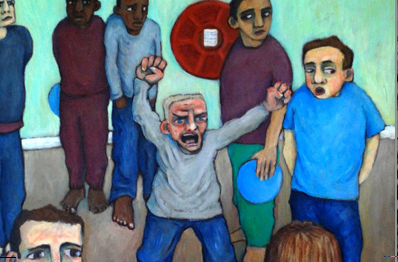HMP Liverpool ‘so dirty, infested and hazardous that it could not be cleaned’
MPs have called for greater resources for prisons inspectors after finding national and local management failures in in relation to ‘squalid’ HMP Liverpool which were ‘symptomatic of wider failings across the prison’. In one of their most scathing reports, inspectors described the prison’s ‘abject failure’ to provide a decent regime at the prison two years after a 2015 report warned that the jail was “not safe enough”
The House of Commons’ justice committee took evidence from ministers and officials following the inspection report published in January which stated that conditions were the worst inspectors had ever seen. HMP Liverpool is a category B men’s prison which held 1,115 men at the time of the inspection in September last year. Its report found the prison had ‘basic failings’ that were ‘painfully obvious’. Of 89 recommendations made by inspectors in 2015, only 22 had been fully achieved.
The inspection highlighed the plight of one prisoner with complex mental health needs who was left for weeks in a dark and damp cell with no furniture other than a bed, broken windows, exposed wires and a filthy blocked lavatory. It took the personal intervention of the chief inspector of prisons, Peter Clarke, to get him moved ‘from such appalling conditions’.
Inspectors found ‘squalid’ living conditions, with dirt, litter, rats, cockroaches and ‘piles of rubbish’ that had not been cleared by prisoners employed as cleaning orderlies because it presented a health and safety risk. There were also hundreds of broken windows with jagged glass in the frames and filthy or leaking toilets.
The chief inspector revealed the prison also had a backlog of about 2,000 maintenance tasks. ‘It was so bad that external contractors were to be brought in to deal with it. In other words, this part of the jail had become so dirty, infested and hazardous to health that it could not be cleaned.’
The report says half the prisoners remained locked in their cells during the working day, violence of all kinds had increased since the previous inspection in 2015, and nearly two-thirds of prisoners said it was easy or very easy to obtain drugs.
The report concluded: ‘We could see no credible plan to address these basic issues.’ In the weeks following the visit, two inmates killed themselves.
Clarke said: ‘It is hard to understand how the leadership of the prison could have allowed the situation to deteriorate to this extent… . The inspection team was highly experienced and could not recall having seen worse living conditions than those at HMP Liverpool.’
Clarke also made clear that blame for the situation rests on the national leadership of the prison service as much as local prison governors: ‘We saw clear evidence that local prison managers had sought help from regional and national management to improve conditions they knew to be unacceptable long before our arrival, but the resulting support was inadequate and had made little impact on outcomes for prisoners.’
MPs urged in the report that the Inspectorate should be given additional resources to ensure their recommendations are followed and lead to improvements, both at HMP Liverpool and in other prisons. Inspectors have been saying the jail is unclean, with an infestation of cockroaches, and broken windows since 2003. However, figures from the National Offender Management Service shows the prison’s budget has fallen from almost £26m in 2011-12 to less than £21.5m in 16-17, a decrease of more than 17%.
The Tory MP Bob Neill, chair of the committee, said this was the first time his committee had taken evidence on an individual prison ‘reflecting the seriousness of the Chief Inspector’s findings’. The situation at HMP Liverpool is not unique and is symptomatic of shortcomings evident across the prison estate which need to be addressed as a matter of urgency.
‘It is clear that HMIP require additional resources so they can make sure that their recommendations are properly acted upon…The Justice Committee intends to ensure that ministers, officials and individual prisons are properly held to account when urgent and serious failings are highlighted.’
Bob Neill, Justice Committee
A Ministry of Justice spokesperson welcomed the committee’s report saying that ministers were ‘absolutely clear that conditions at HMP Liverpool were unacceptable and we will not stand for them…. we want to be held accountable when failings persist, which is why ministers introduced the urgent notification process – demanding the Secretary of State introduce tough measures to improve failing prisons.’
Committee member and MP David Hanson pointed out that while the report focusses on the inspection of HMP Liverpool, there has also been a ‘very disappointing’ inspection of Swansea, as well as a report highlighting a “persistence of failure” at Wormwood Scrubs in recent months.
Meanwhile, the Observer over the weekend the analysed hundreds of inspections covering 118 institutions and found that more than two-thirds (68%) were now providing unsatisfactory standards in at least one respect, with two in five jails deemed to be unacceptably unsafe. Lord Woolf, who oversaw the inquiry into the Strangeways riot in 1990, warned of more riots. ‘[If] you ask me whether we have gone back to where we were pre-Strangeways, I think we are there in that sort of territory,’ he told the paper.







